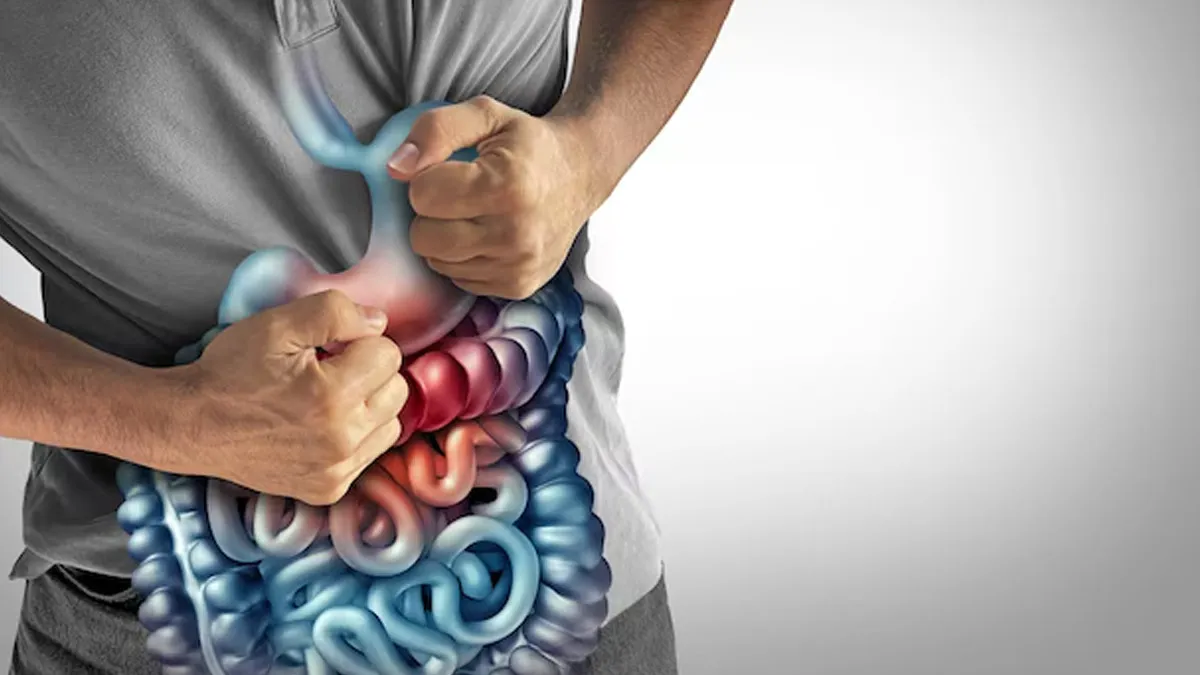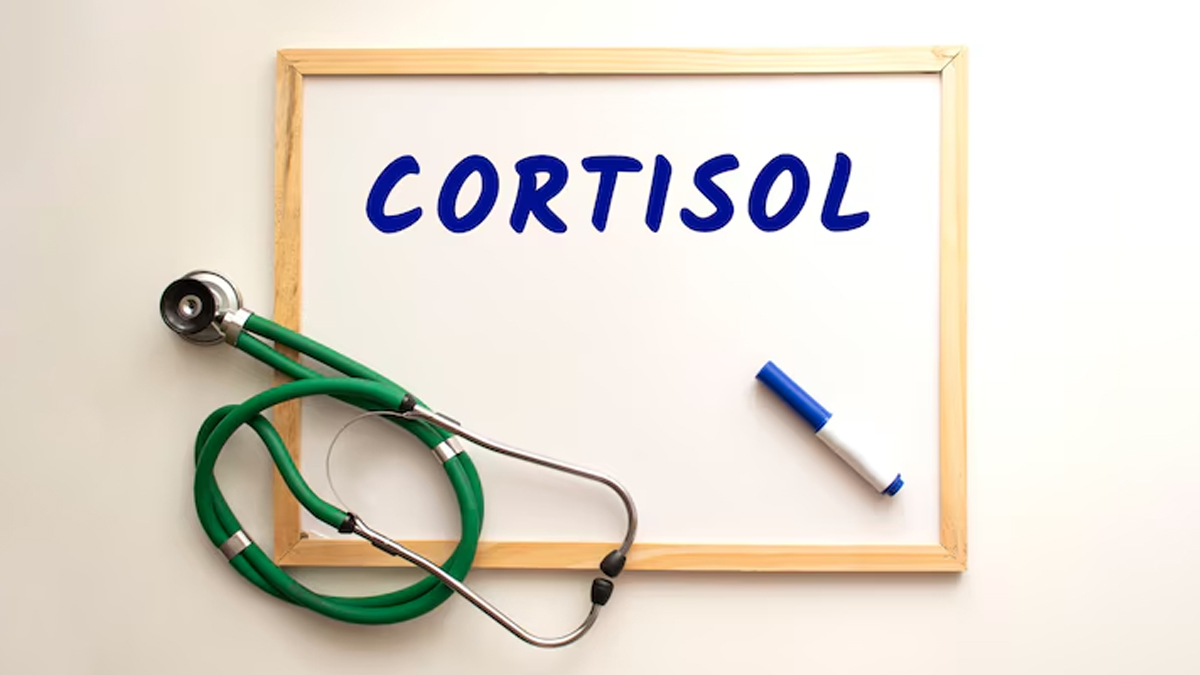
People with Irritable Bowel Syndrome (IBS) often complain of their symptoms worsening in the morning. This gastrointestinal condition affects your stomach and intestine, leading to symptoms, such as bloating, gas, constipation, and abdominal pain. The symptoms can keep changing day-to-day and some may even disappear for a few days but may return. We spoke to Dr Bhuvan Shetty, Consultant - Medical Gastroenterologist and Hepatologist, Gleneagles BGS Hospital, Kengeri, Bengaluru, who explained the reasons behind IBS symptoms worsening in the morning.
Table of Content:-

IBS was earlier believed to be a functional disease, but many possible pathophysiologic mechanisms can now explain the symptoms. IBS patients are classified into subtypes according to their predominant bowel habits, based on the Rome IV criteria (criteria to diagnose disorders of the gut-brain interaction). "These include diarrhoea-predominant and constipation-predominant IBS, as well as the mixed type, a combination of the two. The pathophysiology of IBS includes disordered gut motility, alterations in gut microbiota, neural-hormonal system abnormalities, immune reactivity, and visceral hypersensitivity," explained Dr Shetty.
Reasons Why Your IBS Symptoms Are Worse In The Morning
IBS symptoms often tend to be worse in the morning for several reasons, which are both physiological and psychological. Dr Shetty breaks down the possible factors behind this as follows:
Hormonal Fluctuations

In the morning, cortisol (stress hormone) levels naturally peak as part of the body’s circadian rhythm. "This surge in cortisol can increase sensitivity in the digestive system, making it more reactive to stimuli or irritation. For people with IBS, this can result in more noticeable symptoms like cramping, bloating, and diarrhoea," said Dr Shetty.
Increased Gastrocolic Reflex
The gastrocolic reflex is a natural bodily response where eating or even waking up and thinking about food triggers contractions in the colon. In people with IBS, this reflex can be exaggerated, leading to urgent bowel movements and discomfort soon after waking up, especially if you eat breakfast shortly after getting out of bed.
Also Read: IBS Can Cause Both Constipation And Diarrhoea: Expert Explains Why This Happens And How To Manage It
Dehydration Overnight

Your body is in a dehydrated state during sleep because of the lack of consumption of fluids. "Dehydration can exacerbate IBS symptoms, particularly constipation, and make the gut feel sluggish and painful once we wake up. In the morning, your digestive system may take some time to 'wake up' as well, leading to bloating and discomfort," added Dr Shetty.
Changes in Gut Motility
Your digestive system's motility (movement of food and waste) tends to slow down during sleep. Upon waking up, it takes a little time for the system to 'rev up,' and this can cause bloating, discomfort, or urgency in the morning, especially for those with IBS.
Psychological Factors
Stress and anxiety can have a big impact on IBS symptoms. Your central nervous system controls your brain, while your enteric nervous system controls your gut and intestinal motility, according to a 2022 study.
People often wake up with increased anxiety, especially about the day ahead, and this can worsen gut sensitivity and exacerbate symptoms. In the morning, the body's stress response system may be more active, which is tied to increased gut sensitivity.
Factors Leading To IBS Symptoms
IBS symptoms can be caused by several factors, including food, stress, and infections.
Food

- Food intolerance: Some people have digestive issues when they eat certain foods, such as dairy, wheat, beans, citrus fruits, and cabbage.
- FODMAPs: Poorly digested carbohydrates like fermentable fructans, oligosaccharides, disaccharides, monosaccharides, and polyols can cause IBS symptoms.
- Fatty foods: Fat in your diet can cause your colon to contract more after a meal.
- Carbonated drinks: Carbonated drinks can upset digestion.
- Alcohol: It can trigger IBS flare-ups.
Stress
- Stressful events: Stressful or difficult early life events, such as physical or sexual abuse, can contribute to IBS.
- Mental disorders: Mental disorders like depression, anxiety, and Post-Traumatic Stress Disorder (PTSD) can contribute to IBS.
- Stressful routines: Changes in your routine can trigger IBS symptoms.
Infections
- Bacterial infections: These infections in your digestive tract can cause IBS.
- Parasitic infections: Parasitic infections like giardiasis can cause IBS.
- Protozoal infections: Protozoal infections like blastocystosis can cause IBS-like symptoms.
Management Strategies For IBS
Follow these measures to manage IBS symptoms shared by Dr Shetty:

- Hydration: Start your day with a glass of water to help rehydrate your system after hours of sleep.
- Eat Slowly: Avoid rushing through meals. Eating slowly and mindfully can help reduce the impact of the gastrocolic reflex.
- Stress Management: Practice relaxation techniques in the morning, such as deep breathing, meditation, or yoga, to help manage cortisol levels and anxiety.
- Small, Frequent Meals: Eating smaller meals throughout the day can reduce the strain on your digestive system. Avoid large, heavy breakfasts.
- Fibre Balance: Ensure your diet includes a balance of soluble and insoluble fibre, depending on whether you tend towards constipation or diarrhoea. If constipation is a concern, soluble fibre (like oats) might be helpful, whereas insoluble fibre (like whole grains) could help if diarrhoea is the issue.
- Probiotics: Some people with IBS find that probiotics help balance gut bacteria and reduce symptoms, though this should be tailored to individual needs.
[Disclaimer: This article contains information provided by an expert and is for informational purposes only. Hence, we advise you to consult your professional if you are dealing with any health issue to avoid complications.]
Also watch this video
Read Next
Brain Stimulation Breakthrough Helps Paralysed Individuals Walk Again, Recent Study Discovers
How we keep this article up to date:
We work with experts and keep a close eye on the latest in health and wellness. Whenever there is a new research or helpful information, we update our articles with accurate and useful advice.
Current Version